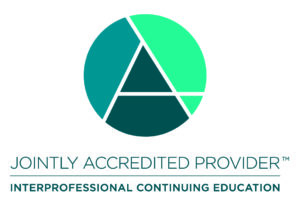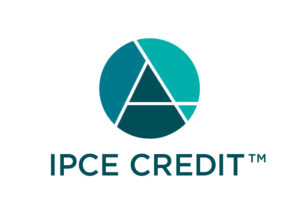Praxis Continuing Education & Training
ACT for Anxiety Disorders
Michael P. Twohig, PhD
12 CE credits available
Please read the complete course information below prior to registering.
Target Audience:
This course is for mental health professionals with some background knowledge in acceptance and commitment therapy. This includes counselors, psychologists, substance abuse counselors, social workers, physicians, and nurses. It is not a foundational course so some training or practical experience in ACT is expected.
Schedule: (12 hours total)
1. Assessment and Case Conceptualization – Contextualize anxiety from an ACT perspective; How to identify the core fears that underlie phobias, OCD, social anxiety, panic disorder, and generalized anxiety; How to use the ACT Adviser tool to assess clients and create case conceptualizations (129 minutes)
2. Starting a Client's ACT Work – How to tailor psychological flexibility training to anxiety clients; How ACT-based exposure evolved from earlier models, and what makes it more effective; An ACT-Based Treatment Roadmap to help you plan your therapeutic course of action; How to educate clients about their own anxiety and get their buy-in for exposure treatments; Two clinical demonstrations around creative hopelessness and why efforts to control anxiety don’t succeed (117 minutes)
3. Acceptance, Defusion, and Values – How to help clients build willingness to have anxiety rather than fighting with it; Strategies for helping clients grasp defusion; Why values are at the heart of all ACT-based exposure exercises, and how to keep clients focused on them (119 minutes)
4. Starting Exposure Exercises, and OCD – How to consult with a client to determine the right exposure exercise; How to set it up and carry it out successfully; Clinicians’ personal barriers to ACT-based exposure, and how to improve their psychological flexibility; What ACT-based exposure uses instead of the SUDS scale; A clinical demonstration of how exposure therapy can treat OCD (98 minutes)
5. Specific Phobia, Social Phobia, and Panic Disorder – A clinical demonstration of how to treat specific phobias with ACT-based exposure; A clinical demonstration of how ACT-based exposure treats social anxiety; How to customize effective between-session exercises so that clients will actually complete them (128 minutes)
6. GAD, and Between-Session Work – A demonstration of how to target and apply ACT-based exposures to panic disorder; The best way to review how a client did with a between-session exercise, and use what you learn to inform treatment; A clinical demonstration of how to tailor ACT-based exposures to treat generalized anxiety disorder; Tips for when a client gets stuck; When and how to bring treatment to an end (135 minutes)
Overall Objectives:
At the conclusion of this course, participants will be able to:
1. Assess a client’s psychological flexibility in relation to their anxiety
2. Describe and distinguish between the three models of exposure therapy: emotional processing, inhibitory learning, and ACT-based
3. Discuss a rationale for undertaking ACT-based exposure therapy
4. Describe how to implement acceptance, defusion, values, and self-as-context exercises with anxiety clients
5. Design appropriate in-session ACT-based exposure exercises for anxiety clients
6. Identify appropriate between-session ACT-based exposure exercises for anxiety clients
7. Describe how to implement appropriate treatment modifications for panic disorder and generalized anxiety disorder
8. Identify at least two ways to deal with opposition or stuckness from anxiety clients during in-session and between-session work
9. Discuss how to conceptualize and implement appropriate therapy termination
Grievance Procedures for CE Activities
Should a participant in the course be unsatisfied with the course, the participant should immediately contact our customer support team to file a grievance. Within five days, a customer support team member will contact the participant by email and/or phone and attempt to resolve the issue.
We will investigate and assess the issue from the perspective of the participant and every effort will be made to resolve the issue. If the issue is not resolved to the satisfaction of the participant, the participant will be offered a refund per the Refund and Cancellation Policy guidelines.
To file a grievance, please contact us at courses@praxiscet.com.
ADA Accommodations
To request accommodations for disabilities, please contact Praxis Continuing Education at courses@praxiscet.com.
Contact Information:
The Praxis team can be contacted at courses@praxiscet.com
Praxis Continuing Education
5674 Shattuck Avenue
Oakland, CA 94609 USA
CE Information:
This non-live online course is sponsored by Praxis Continuing Education and Training and is approved for 12 CE Hours. Praxis CET maintains responsibility for the program with the CE approvals outlined below:

Joint Accreditation: In support of improving patient care, Praxis Continuing Education and Training, Inc. is jointly accredited by the Accreditation Council for Continuing Medical Education (ACCME), the Accreditation Council for Pharmacy Education (ACPE), and the American Nurses Credentialing Center (ANCC), to provide continuing education for the healthcare team.

IPCE: This activity was planned by and for the healthcare team, and learners will receive 12 Interprofessional Continuing Education (IPCE) credit for learning and change.
Nursing: Praxis Continuing Education and Training, Inc. designates this activity for a maximum of 12 ANCC contact hours.
Physicians: Praxis Continuing Education and Training, Inc. designates this online enduring material activity for a maximum of 12 AMA PRA Category 1 Credits™. Physicians should claim only the credit commensurate with the extent of their participation in the activity.

Psychologists: Continuing Education (CE) credits for psychologists are provided through the co-sponsorship of the American Psychological Association (APA) Office of Continuing Education in Psychology (CEP). The APA CEP Office maintains responsibility for the content of the programs.
Social Workers: As a Jointly Accredited Organization, Praxis Continuing Education and Training, Inc. is approved to offer social work continuing education by the Association of Social Work Boards (ASWB) Approved Continuing Education (ACE) program. Organizations, not individual courses, are approved under this program. State and provincial regulatory boards have the final authority to determine whether an individual course may be accepted for continuing education credit. Praxis Continuing Education and Training, Inc. maintains responsibility for this course. Social workers completing this course receive 12 clinical continuing education credits.
Drug and Alcohol Counselors: This course has been approved by Praxis Continuing Education and Training, Inc. as a NAADAC Approved Education Provider, for 12 CE hours. NAADAC Provider #165310, Praxis Continuing Education and Training, Inc. is responsible for all aspects of its programming.

National Counselors: Praxis Continuing Education and Training, Inc. has been approved by NBCC as an Approved Continuing Education Provider, ACEP No. 6759. Programs that do not qualify for NBCC credit are clearly identified. Praxis Continuing Education and Training, Inc. is solely responsible for all aspects of the programs.
NY Counselors: Praxis Continuing Education and Training, Inc. is recognized by the New York State Education Department's State Board for Mental Health Practitioners as an approved provider of continuing education for licensed mental health counselors #MHC-0198.
NY Social Workers: Praxis Continuing Education and Training, Inc. is recognized by the New York State Education Department's State Board for Social Work as an approved provider of continuing education for licensed social workers #SW-0467.
NY Psychologists: Praxis Continuing Education and Training, Inc. is recognized by the New York State Education Department's State Board for Psychology as an approved provider of continuing education for licensed psychologists #PSY-0002.
NOTE: Many state boards accept offerings accredited by national or other state organizations. If your state is not listed, please check with your professional licensing board to determine whether the accreditations listed are accepted.
CE Course Launch Date: 10/03/2022
Expiration Date/Next scheduled review date: 10/03/2025
Disclosure of Relevant Financial Relationships
Praxis Continuing Education and Training is responsible for the content, quality, and scientific integrity of all CE activities certified for credit. When an educational activity is offered for medical (CME), Nursing (ANCC), and/or Psychology (APA) continuing education credit, participants must be informed as to the source, amount, nature, and disposition of any funding used to support the activity, whether in the form of educational grants, cash contributions, or in-kind contributions. Individuals in a position to influence course content must also disclose whether they have one or more relevant financial relationships with ineligible companies.
We define ineligible companies as those whose primary business is producing, marketing, selling, re-selling, or distributing healthcare products used by or on patients. There is no minimum financial threshold; individuals must disclose all financial relationships, regardless of the amount, with ineligible companies. We ask that discloses are made regardless of whether the individual views the financial relationships as relevant to the education. For more information on the Standards for Integrity and Independence in Accredited Continuing Education, please visit accme.org/standards.
All those in a position to control the content of an education activity are asked to disclose any relevant financial relationships they have with any ineligible companies.
There is no commercial support for this activity.
Michael Twohig has disclosed that he receives royalties from Oxford University Press and New Harbinger Publications.
All of the relevant financial relationships listed have been mitigated.
None of the other planners or presenters for this educational activity have relevant financial relationship(s) to disclose with ineligible companies whose primary business is producing, marketing, selling, re-selling, or distributing healthcare products used by or on patients.
How to Obtain Your CE Certificate:
After completing the course, please follow these steps to access your course evaluation, post-test (when applicable), and CE certificate. To receive credit, you must complete the course in full, pass the post-test with an average score of 80% or higher, and complete the course evaluation. No partial credit will be awarded. Please read through all of the instructions below before proceeding.
- Once you have completed all the modules and have taken the post-test for each module, go to the “Evaluation” tab on the course menu.
- If you have passed the post-tests with a cumulative average score of 80% or higher, the course feedback evaluation will be made available to you on the Evaluation page. You will be allowed to retake each post-test only once if you do not pass with an 80% or higher average.
- After submitting the feedback evaluation, a button will appear that will allow you to download your certificate.
We encourage members to submit the feedback evaluation within 6 months of course completion to earn their CE certificate.
Technical Requirements:
In order to complete this course, attendees will need:
- A computer with a monitor, keyboard, and a mouse or a mobile device/tablet
- Speakers/headphones: either built‐in to your computer/device or external (plugged into your computer)
- An internet connection, either wired or wireless. A minimum connection speed of 3 megabits is required to stream clear, standard definition video.
- The course is supported on most up-to-date internet browsers (Google Chrome, Safari, Firefox, Microsoft Edge, Brave, etc.)
- A PDF viewer such as Adobe Acrobat Reader
- An email address
- [Optional] A printer or access to a printer (to print any of the PDFs, if desired)
- [Optional] A Facebook account for access to the ACT for Anxiety Disorders community group
References:
1) Arch, J. J., Eifert, G. H., Davies, C., Vilardaga, J. C. P., Rose, R. D., & Craske, M. G. (2012). Randomized clinical trial of cognitive behavioral therapy (CBT) versus acceptance and commitment therapy (ACT) for mixed anxiety disorders. Journal of Consulting and Clinical Psychology, 80(5), 750–765.
2) Gloster, A., Walder, N., Levin, M., Twohig, M., & Karekla, M. (2020). The empirical status of acceptance and commitment therapy: A review of meta-analyses. Journal of Contextual Behavioral Science, 18, 181–192.
3) Twohig, M. P., Abramowitz, J. S., Smith, B. M., Fabricant, L. E., Jacoby, R. J., Morrison, K. L., Bluett, E. J., Reuman, L., Blakey, S. M., & Ledermann, T. (2018). Adding acceptance and commitment therapy to exposure and response prevention for obsessive-compulsive disorder: A randomized controlled trial. Behaviour Research and Therapy, 108, 1–9.